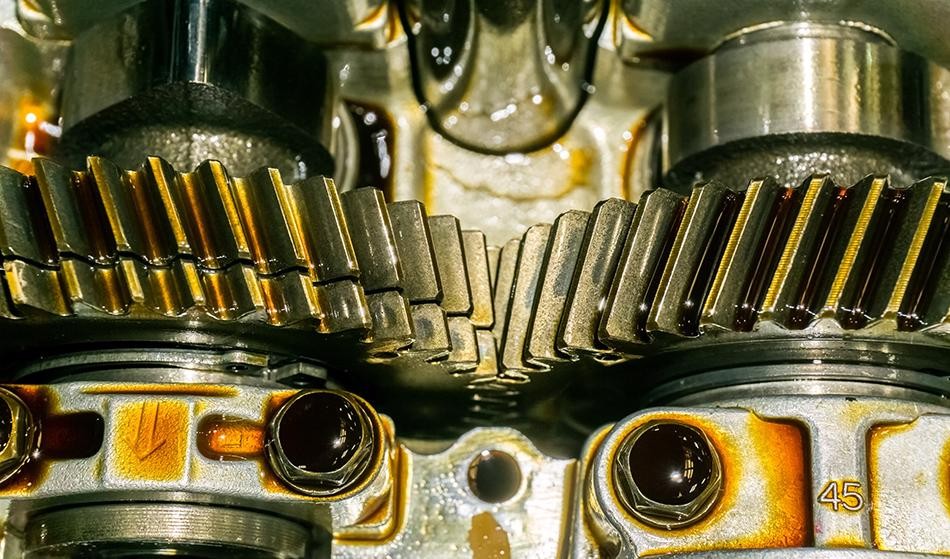

By the end of this course delegates will be able to:
The course is intended for individuals directly involved in the machinery lubrication process whose job titles may include Lubrication Technician, PM Technician, Mechanic, Operator, etc..
• Mechanical Engineers, Superintendents, Supervisors, Foremen & Technicians
• Machinery Engineers, Superintendents, Supervisors, Foremen & Technicians
• Plant Engineers, Superintendents, Supervisors, Foremen & Technicians
• Maintenance Engineers, Superintendents, Supervisors, Foremen & Technicians
• Lectures
• Workshop & Work Presentation
• Case Studies and Practical Exercise
• Videos and General Discussions
Day 1
1. Lubrication Theory
• Introduction
• Purpose of a Lubricant
• Functions of Lubricating Oil
• Tribology & Friction
• Coefficient of Friction
• Metal-to-Metal Contact
• Dynamic Clearances in Design of Components
• Lubricant Film Types
• Boundary Lubrication
• Mixed Film Lubrication
• Hydrodynamic Lubrication
2. Lubricant Types
• Introduction
• Lubricant Composition
• Base Oils
• Base Stock Quality
• Mineral Lubricants
• Synthetic Lubricants
• Vegetable Lubricants
• Greases
• Solid Lubricants
3. Lubrication Applications
• Introduction
• Selecting a Lubricant Delivery System
• Lubricant Delivery Options
• Manual Lubrication
• Natural Delivery Methods
• Oilers
• Pressure Delivery Methods
• Centralized Lubrication
DAY 2
4. Lubrication Additives
5. Grease types
6. Oil Analysis
• What Oil Analysis Can Tell You
• On-Site Analysis versus Lab Analysis
• Oil Analysis monitors three conditions:
• The Benefits of Oil Analysis
• Lubrication Properties
• Water Content
• Rules for Oil Sampling
• Wear Particle Analysis
• Wear Particles AnalysisCase Study
Day 3
• Introduction to Bearings
• What is the Function of the Bearings?
• Friction
• Comparison Between Friction Types
• The Forces Acting on the Shaft
• Classification of Bearings
• Anti-Friction Bearings
• Advantages
• Disadvantages
• Types of Rolling Elements:
• Bearing Loads
• Bearing Arrangement
• Anti-friction Bearing Materials
• Identification of Anti-Friction Bearings
• ISO Identification of Anti-Friction Bearings
• ISO Bearing Standards
• Non-ISO Standards and Codes
• ISO Bearing Type and Size:
• Generic Supplementary Designations
• Bearing clearance
• How to Get the Correct Bearing for each of the Operating Conditions
DAY 4
• Anti-friction Bearing Failure
• Wear Marks
• Normal Fatigue Failure
• Misalignment
• Damage Caused by Incorrect Fitting
• Loss of Bearing Clearance
• Loose Fits
• Tight Fits
• Brinelling and False Brinelling
• False Brinelling
• True Brinelling
• Lubrication Failure
• Contamination
• Excessive Loads
• Overheating
• Reverse Loading
• Corrosion
DAY5
• Fluid Film Bearing
• Friction Bearings (Sliding Friction)
• Advantages
• Disadvantages
• Sliding Surface Bearings (Plain Bearings)
• Types of Plain Bearings
• Plain radial bearings
• Thrust plain bearings
• Tilting-pad Bearings
• General Requirements for Bearing Materials
• Materials Types (Plain Bearings)
• Large Babbitt or White-Metal Lined Bearing
• Plain (Journal) Bearing Materials
• Classification of Sliding Surface Bearings
• Classification of Sliding Surface Thrust Bearings
• Bearing Clearance
• Hydrodynamic Bearing Failure Analysis
• Fatigue Failures
• Bearing Metal Wear
• Corrosion
• Effect of Hard Particles on Bearing
• Effect of Lubrication
• Effect of Overloads
• Assembly Deficiencies
• Electrical Discharge Damage
• Design-related Failures
• Maintenance
• Preventive maintenance
• Reliability-centered maintenance
• Combination of condition-based and preventive maintenance
• Maintenance activities
CDGA attendance certificate will be issued to all attendees completing a minimum of 75% of the total course duration
| Code | Date | Venue | Fees | Register |
|---|---|---|---|---|
| ME185-02 | 21-06-2026 | Amman | USD 5450 | |
| ME185-03 | 07-09-2026 | Cape Town | USD 6950 | |
| ME185-04 | 23-11-2026 | Kuala-Lumpur | USD 5950 |
Providing services with a high quality that are satisfying the requirements
Appling the specifications and legalizations to ensure the quality of service.
Best utilization of resources for continually improving the business activities.
CDGA keen to selects highly technical instructors based on professional field experience
Since CDGA was established, it considered a training partner for world class oil & gas institution
3012, Block 3, 30 Euro Business Park, Little Island, Co. Cork, T45 V220, Ireland
Mon to Fri 09:00 AM to 06:00 PM
Contact Us anytime!
Request Info